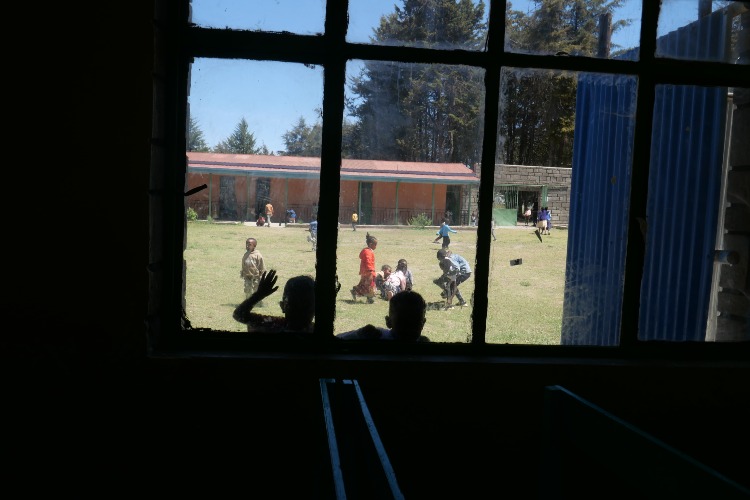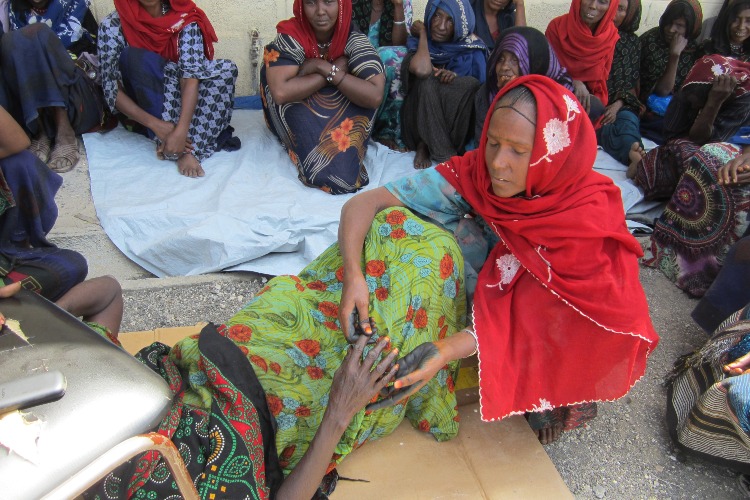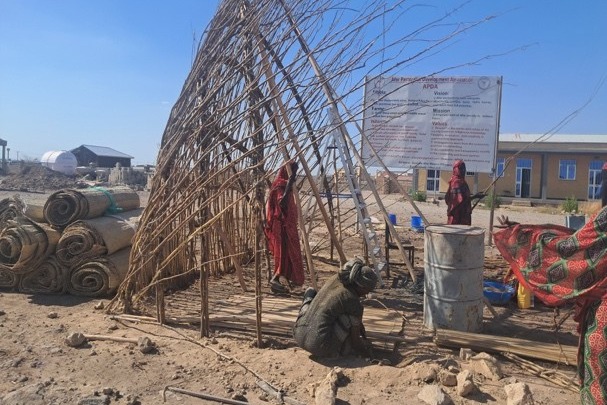CEO Update
14 November 2024

Watch the latest video update from CEO of Ethiopiaid Australia, Sharon Elliott
Find out about recent challenges and developments in Ethiopia, and how these are impacting our project partners.
Video Transcript
Thank you for joining me today. My name is Sharon Elliott and I am the CEO of Ethiopiaid Australia.
I want to give you a brief update on the current situation in Ethiopia, along with the work that is being done by our incredible partners in the field.
As you may be aware, the past months and indeed the past years have been extremely difficult for millions of people in Ethiopia.
Inflation continues to be one of the greatest challenges facing the Ethiopian people. Ethiopia has one of the highest inflation rates of any country in the world – around five times higher than what we’ve been seeing in Australia. This of course is having a huge impact on people’s lives.
Many daily essentials are now so expensive that millions are simply unable to afford the food and basic goods they need to survive.
Our partners bear the burden of these massively increased prices, and are also finding that there are many, many more people in need of their assistance given the huge impact that prices are having on people who already have very little.
The State of Emergency in the Amhara Region that was declared in August 2023 was extended in February of this year. Although it has now technically ended, the government has made no apparent move to announce an end to the restrictions imposed by the State of Emergency, and life continues to be very hard for the people in the region. Communications are limited and sporadic violence and fighting are widespread. We have a number of partners who operate in this region, and despite the challenging situation, they are more committed than ever to the people who need their help.
For instance, our long-term partner Yenege Tesfa operates in several locations in the Amhara Region. They have four main areas of focus: homes for disadvantaged children, educational support, medical and health services, and income generating activities and societal development. They’ve had to contend with almost no internet connection for months and months, difficulty accessing project sites, and huge costs relating to necessary items and fuel. Nevertheless, they’ve provided holistic care for hundreds of children, ensuring they have full bellies, clean clothes, and a safe place to go home to. They’re also making sure they receive the education they need to build futures for themselves.
In the Afar region, renewed violence has caused displacement of thousands of people who are now seeking shelter in government camps. Our partner, Afar Pastoralist Development Association, is working around the clock to provide relief to these people, as well as thousands of others who are without clean drinking water or have been isolated due to exceptionally heavy seasonal rains.
APDA has reported to us that ‘the overall impression is one of extreme humanitarian need’. The greatest needs that they have identified are shelter, food, medical care and disease protection. In addition, they have stressed the overarching requirement for continued literacy programs which are vital in teaching communities about problem solving, social protection and future-building.
APDA is continuing its programs in education and health with their trademark determination in the face of hardship, and we will continue to support them in any way possible.
In regards to cholera, you may recall that Ethiopiaid provided emergency funds to assist with APDA’s rapid response to an outbreak in the Afar region some months ago. APDA has described this funding as “utterly life-saving”, and reported that the quick turnaround of funds and deployment saved thousands of people from falling ill and possibly dying.
We are so, so grateful to have been able to provide emergency funding in that time of absolute crisis. While cholera is by no means a problem of the past in Ethiopia, we can be certain that without this early response, the disease would have rapidly spread beyond the boundaries of the affected area. Valerie Browning, who led APDA’s rapid response to this outbreak, said that further spread would have caused dire havoc for overall disease control.
In other developments, we have now wrapped up our partnership with the Simien Mountains Mobile Medical Service, following an exciting development. Their activities have been taken on by local government services, meaning their mandate has been achieved. They have facilitated access to health services for people living in remote and hard-to-reach parts of the rugged Simien Mountains, and trained up medical experts who will continue to provide vital care to communities, including midwifery services and cervical cancer screening. Thanks to their incredible work – and their nimble-footed donkeys – the people of the Simien Mountains now have greater access to health services than ever before, and Simien Mountain Mobile Medical Services feel confident that their work will continue in local hands for generations to come.
And one last quick update on our partnership with Hospice Ethiopia. I’m very excited to share that during my visit to Ethiopia earlier in the year, we made plans to extend our support so that Hospice Ethiopia can provide palliative care training to staff in hospitals around the country – in the hope of assisting more patients who are terminally ill to live out their lives with the care they need. We have now finalised this agreement, and I look forward to sharing updates with you in the near future.
Thank you for taking the time to read this update. As ever, I am so profoundly grateful to each and every one of you for the support you continue to offer to the communities of Ethiopia. Despite difficult times, it is heartening to know that there are so many people here in Australia who care so deeply. It keeps us going, and it fills me with hope for a better future for the people of Ethiopia.




